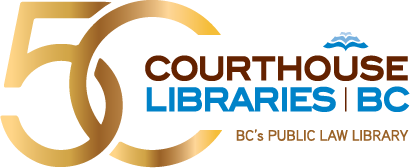In early 2021, LawMatters began working with PovNet and Legal Aid BC to organize a series of virtual gatherings for community advocates, legal aid staff, community library staff, and other front-line workers who help with legal matters with the goal of increasing connections among service providers.
The basic idea behind these sessions is that while many groups point people towards other organizations that offer legal information and support, ensuring good referrals can be tricky because it isn’t always so easy knowing who offers what. These sessions are meant to help address that knowledge gap and facilitate conversation between folks serving nearby communities.
Now that we’re near the halfway mark, we thought to share some key takeaways of what we’ve learned so far and what our next steps will be.
Key findings to date
1. Relationships are key!
It seems like an obvious point, but the importance of finding ways to build and maintain ongoing connections between agencies and workers cannot be overstated. It has been a consistent theme across all 6 sessions. The good news is that feedback is telling us how valued these meetings are, indicating they have the potential to do just that!
2. Advocates, community agencies, and libraries are working really hard to support BC residents navigate and manage complex and difficult situations.
I suppose we already knew that, but nevertheless, it's worth highlighting how much work is being done with limited capacities, especially during the pandemic. Importantly, we are all invested in finding ways to share resources, time, and support to help our clients, our patrons, and each other.
3. In addition to complex and nuanced local issues, themes are emerging that show similar challenges are being faced across many regions of the province.
Major issues include lack of:
- housing
- connectivity
- transportation
- mental health support
- digital literacy
- awareness
- capacity
These are significant, systemic problems, and certainly, there are some that we as community workers have more power to address than others. However, the benefit of getting everyone together is that we open the possibility of learning creative and constructive strategies from each other, and sometimes, finding out about referral options we didn't even know existed. And for now, that's a really good start!
On the practical side of things, we are also learning a lot about what works and what could be improved: the structure, the agenda, the time allotted, how to stay connected afterward, how to proceed going forward, and different digital tools and platforms that can be used to prepare, evaluate, run and share information after the meetings.
Next steps
We continue to plan sessions in the same way by dividing the province into regions to ensure that group sizes are manageable and to allow conversations to have a local focus as issues may be unique based on geography. While we have identified regions based on naturally defined geographical areas, we acknowledge that for a number of reasons, people cross over those lines to deliver or access services. We have been encouraging participants to join in as many sessions as they identify are applicable to them and will continue to do so for future sessions.
We have three sessions scheduled this summer:
-
Central Interior (Williams Lake, Kamloops and area): June 22nd, 2021
-
North Central (Prince George, Quesnel and area): July 6th, 2021
-
Northeast BC (Fort St John and area): August 10th, 2021
We’ll start the fall off with a session in September for Northwest BC (Smithers, Bella Coola, Haida Gwaii, Kitimat, Prince Rupert). Throughout the fall and the remainder of the year we'll host sessions focused on the Lower Mainland, North Shore and the Fraser Valley, including:
- Vancouver
- Abbotsford, Chilliwack
- Tri-cities
- Surrey
- North Vancouver, Sea-to-Sky
We will have one final session where we will report back to anyone and everyone who would like to attend and be part of the continued discussions. Finally, PovNet is working on a training series and a toolkit for anyone interested in continuing to run these forums in your area. More information will be shared about that as it becomes available.
As before, we’ll share details and registration information on the BCLA Public Libraries Interest Group listserv and through direct outreach. If you’d like to attend future sessions or have any questions at all about this work, please contact us at lawmatters@courthouselibrary.ca.
